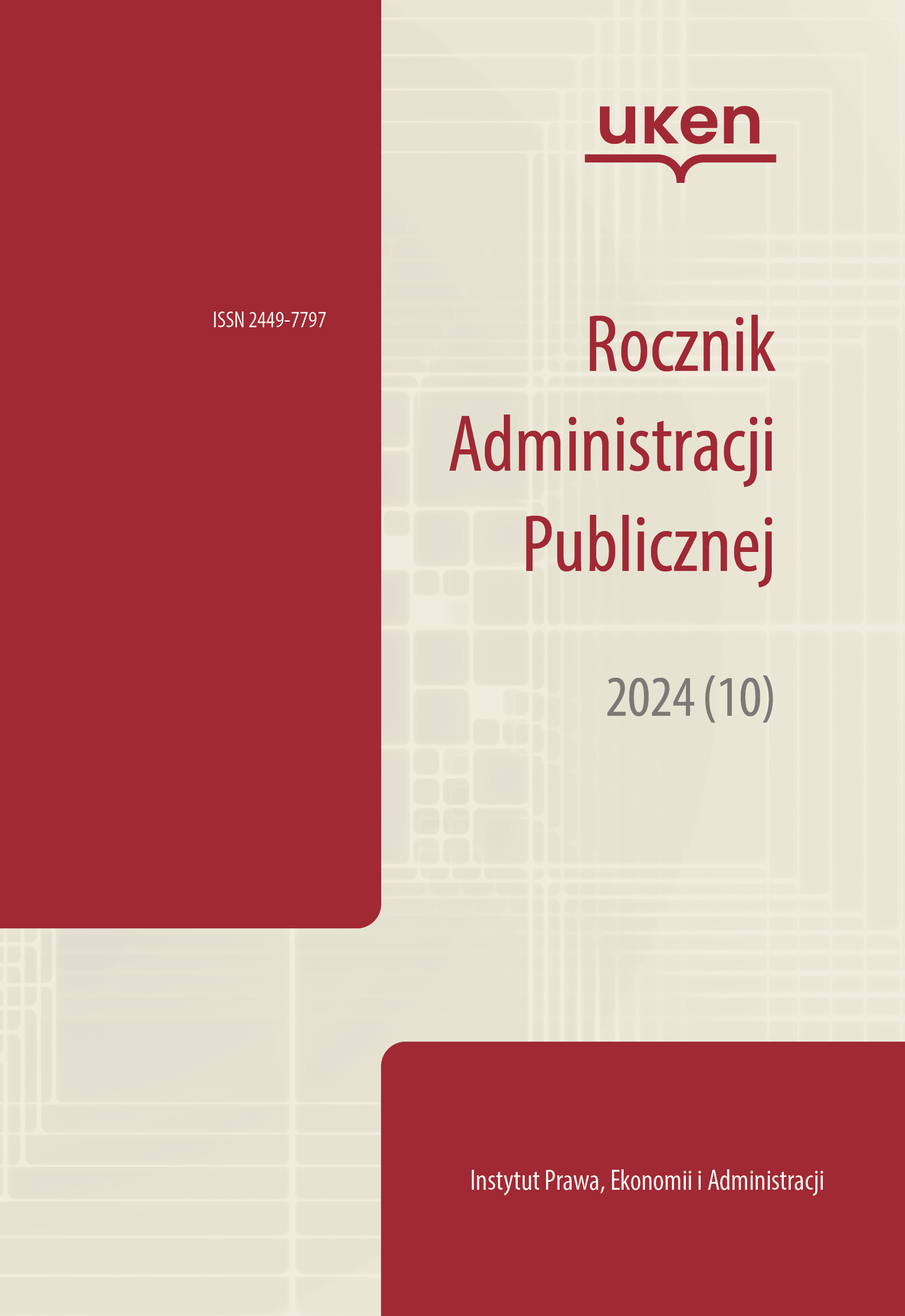
We kindly inform you that, as long as the subject affiliation of our 300.000+ articles is in progress, you might get unsufficient or no results on your third level or second level search. In this case, please broaden your search criteria.



The European Green Deal announced by the European Commission in December 2019 represents an unprecedented attempt at Union level to promote the transition towards the common objective of a climate-neutral economy by reducing carbon emissions by at least 50% (and towards 55%) by 2030 and achieving climate neutrality by 2050. The Commission interpreted its work programme through the concept of greening EU activities in areas identified as key actions in the Communication on the European Green Deal, such as climate ambition, clean, affordable and secure energy, industrial strategy for a clean and circular, sustainable and smart economy, mobility, agriculture and fisheries, biodiversity, zero pollution and a non-toxic environment, integration of sustainability, trade and external policy in the European Climate Pact.
More...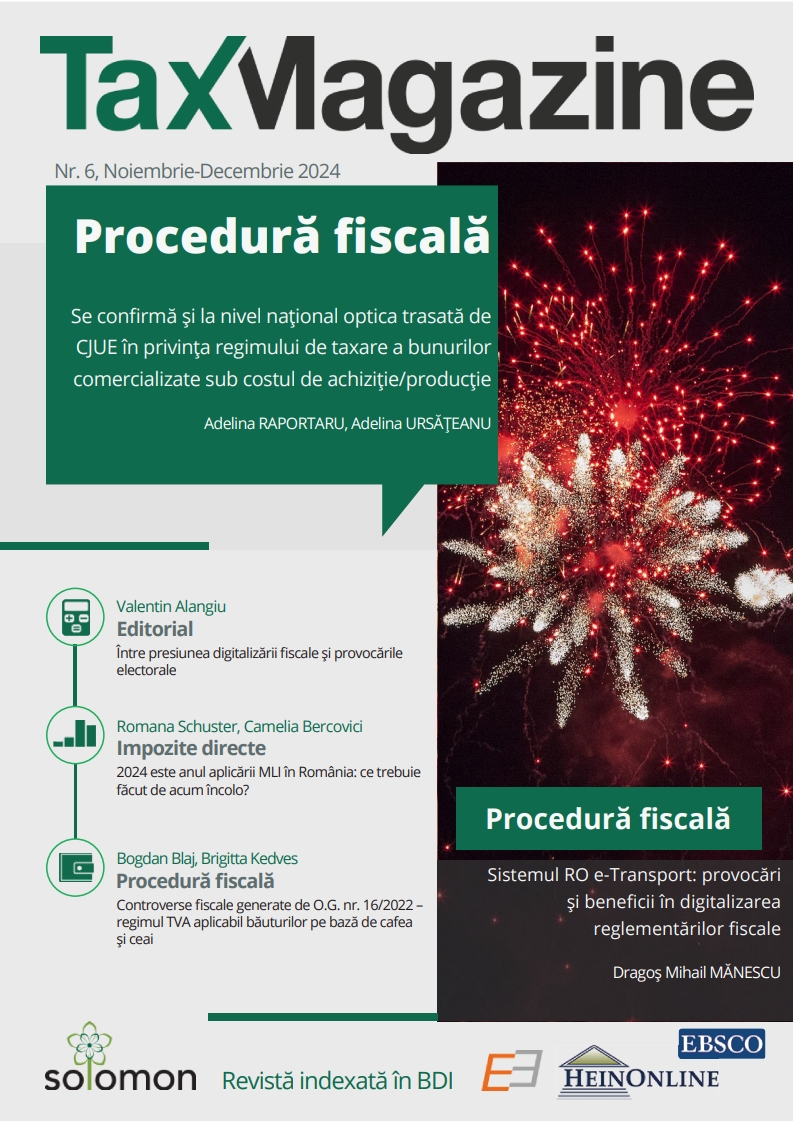
Starting from January 1, 2025, new rules for the VAT regime applicable to small and medium-sized enterprises (SMEs) will come into force at the European level. This new framework aims to simplify compliance and improve cross-border trade opportunities for SMEs within the member states of the European Union.
More...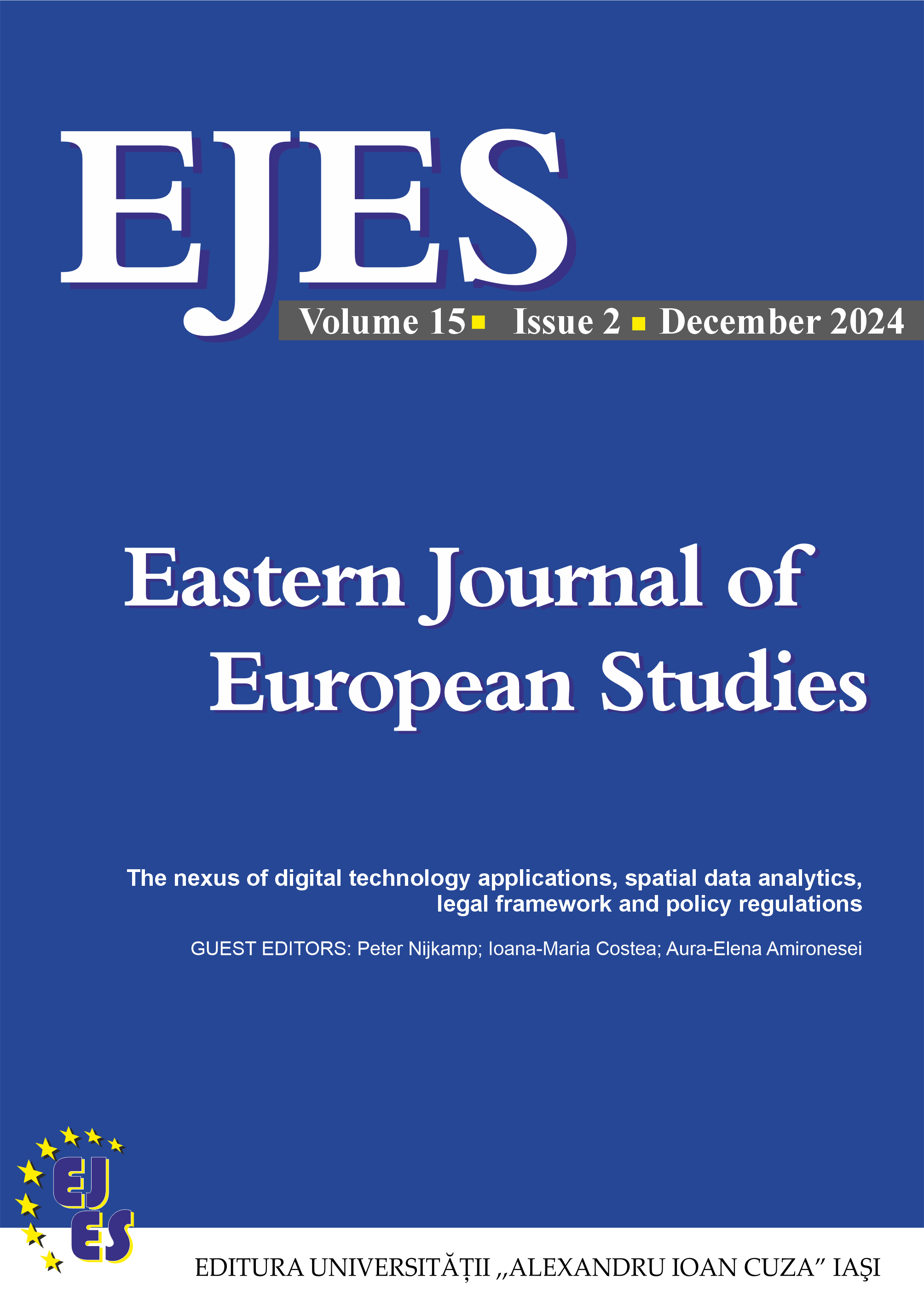
Digital technology is nowadays everywhere. Its technological and computational power is almost beyond imagination. An interesting illustration can be found in the ‘infinite monkey theorem’ (Borel, 1913; Marsaglia & Zaman, 1993). If you give a monkey a laptop and if the monkey randomly hits the keys of the keyboard during an infinite time period, it will in the very long run with 100 percent certainty type any existing text that has a finite number of words. As an illustration, the present preface to this special issue of the Eastern Journal of European Studies (EJES), which was drafted by the guest editors of this special issue of EJES as an original and unique piece of work, can, in the long run, be reproduced by any monkey, provided we wait long enough. Clearly, if we would have a million mutually independent monkeys, this process would go much faster! The computational – and combinational – capacity of modern computers is indeed formidable. At the same time, this miraculous potential prompts many questions, of both an applied and ethical nature, in scientific research, but also in planning and policy-making. Such intriguing issues are addressed in this special issue, which is devoted to the theme of “The Nexus of Digital Technology Applications, Spatial Data Analytics, and Policy Regulations”. The successive articles in this issue zoom in on the high expectations and performance, but also on the severe limitations of the use of digital technology in spatial planning.
More...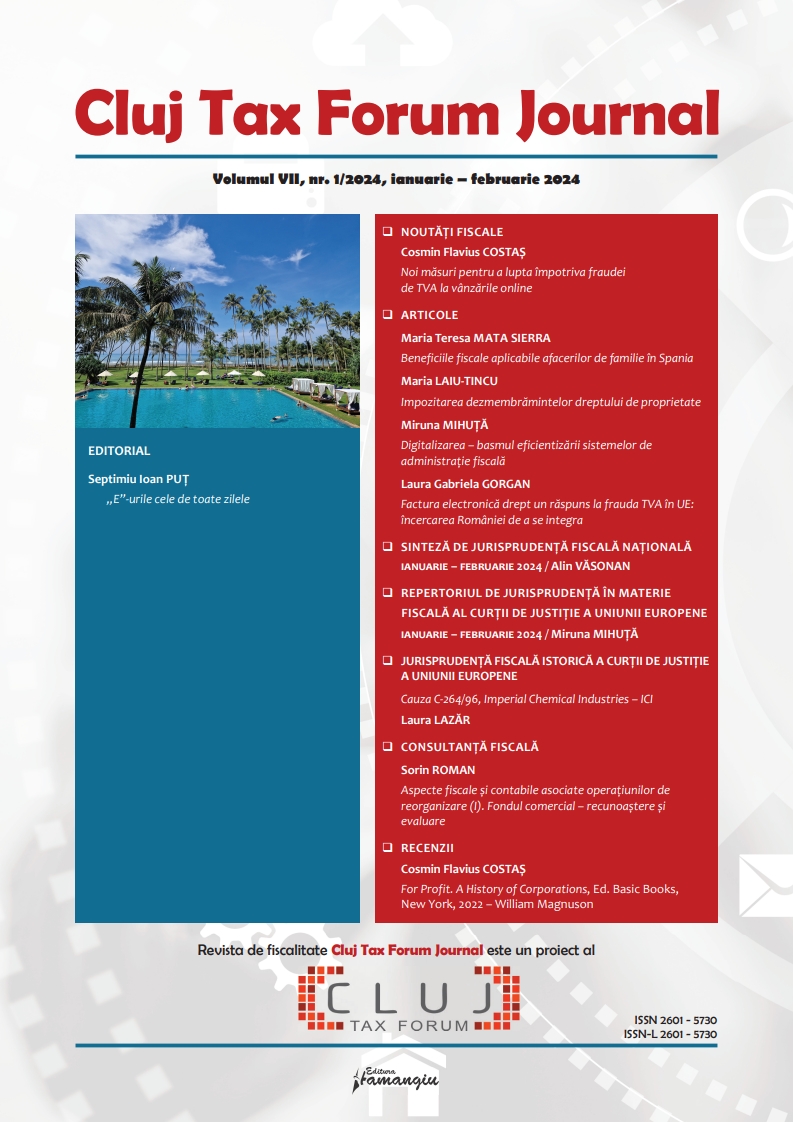
With great power come great responsibilities – this axiom could also be applied to the issue of digitalisation. As time progresses one can easily notice the swift evolution of technology. If three decades ago, technology was solely seen as an accessory for facilitating our lives, nowadays the discussion revolves around its disruptive effects and its potential power that it can possess once it reaches a certain level of autonomy. Nevertheless, as long as it is controlled and well regulated, one cannot deny that it can streamline all sectors of a society, including public administration. In particular, tax administration is known for being extra‑bureaucratic and formal, public servants having to resort to old‑fashioned procedures. However, this constant state of regression cannot withstand the emergence of digital economy. Thus, the European Union has been proactive in encouraging Member States to transform their public systems. In this study, our aim is to determine whether digitalisation can be implemented in a hassle‑free manner, without raising issues in regard to the traditional principles of European tax law and human rights. We approach it from a bilateral perspective, from both the taxpayer’s point of view and also from the point of view of the tax authorities. In the introductory Part (1) of the article, we will offer a brief history of the European Union’s incentives in improving digitalisation among public administration systems. In the second part (2), we will focus on the current state of European Member States and to what extent their tax administration systems are digitalised. In the third part (3) we will proceed to analyse what are the advantages and the disadvantages a systematic digitalisation could incur for taxpayers. Last but not least, the fourth part (4) will shift the focus to tax administrations.
More...
Electronic invoicing (e‑invoicing) has become a key tool in combating VAT fraud, a major issue affecting the European Union (EU). VAT fraud, particularly “carousel fraud,” exploits cross‑border transactions to avoid taxes, causing significant revenue losses. The EU promotes e‑invoicing to improve transparency, streamline tax collection, and enhance compliance. Romania, heavily impacted by VAT fraud, is implementing e‑invoicing to strengthen its tax system and integrate into the EU’s digital economy. This research paper examines the effectiveness of e‑invoicing in reducing VAT fraud, focusing on Romania’s challenges and progress, and highlights its role in enhancing fiscal stability and economic integrity in the EU.
More...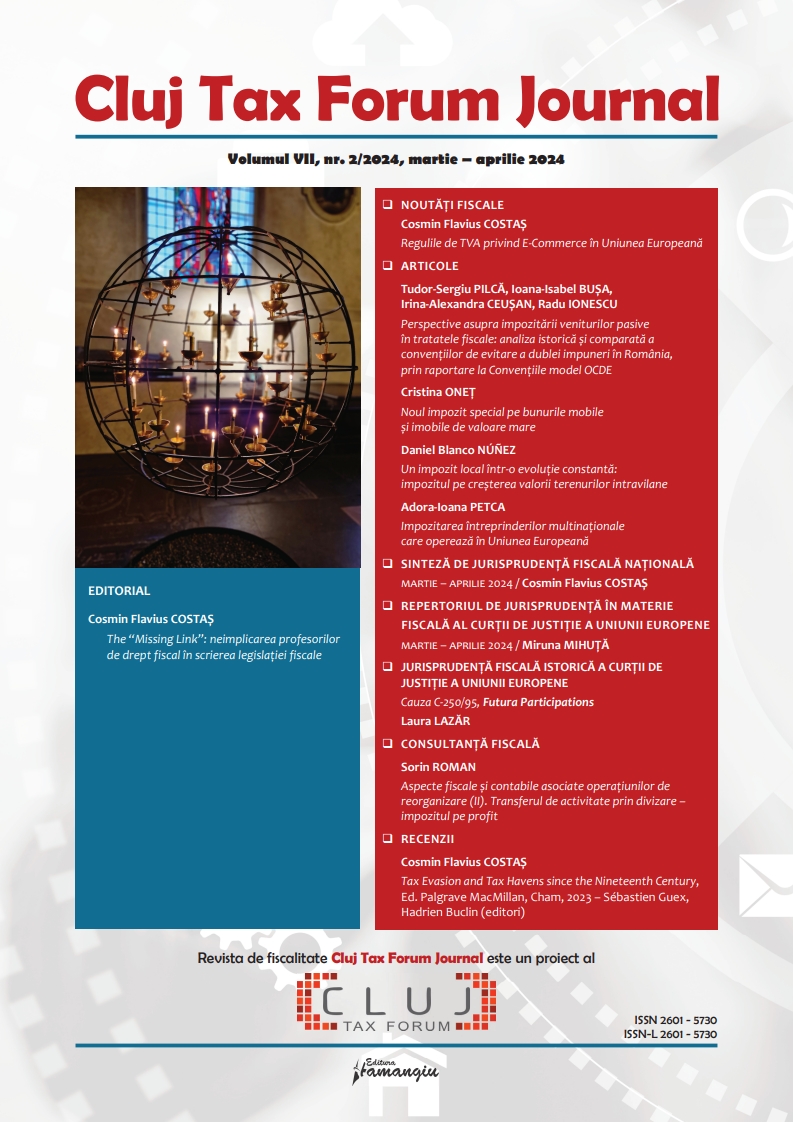
The Futura Participations case highlights the interdependence between the fiscal autonomy of member states and the obligations imposed by European Union law, particularly regarding the freedom of establishment and the principle of proportionality. The European Court of Justice ruled that national tax measures that impose restrictions on non-resident taxpayers must be justified by legitimate and proportionate reasons, avoiding indirect discrimination. In this case, Luxembourg’s accounting requirements were deemed disproportionate, reaffirming that restrictions on fundamental freedoms must be limited to what is strictly necessary. This ruling has subsequently influenced case law on the freedom of establishment and cross-border taxation.
More...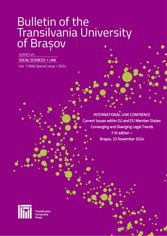
EU member states’ migration and asylum policies are influenced by a complex interplay of national interests, historical contexts, and societal attitudes, leading to divergence. Despite the EU’s goal of a unified migration approach, there are still considerable obstacles that require ongoing discussions and collaboration between member states for the fair and compassionate treatment of migrants and asylum seekers. The significance of migration and asylum policies in the EU will be explored in the paper. The analysis will examine also the EU’s migration and asylum laws, including the Common European Asylum System, and underline the position of some Member States.
More...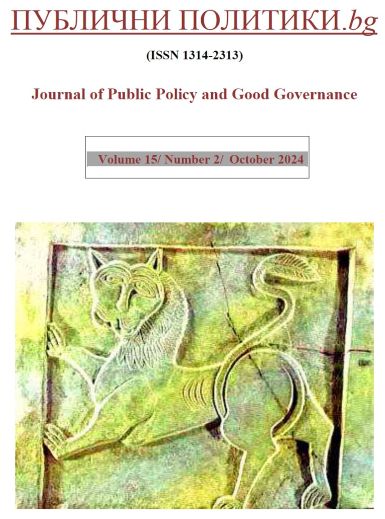
Despite the constantly increasing interest in studying European identity in recent decades, the impact of EU Regional policy on the perceptions and process of identification of European citizens with the EU remains a largely unexplored academic domain. The main question addressed in the article is whether EU Regional policy could contribute to positive citizens' identification with the EU. The study presents the results of the author's qualitative research conducted in Bulgaria analyzed comparatively with the data obtained within the framework of the international study COHESIFY.
More...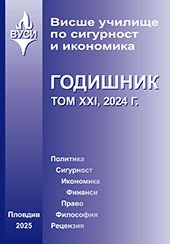
This article aims to explore the issue of criminal liability of the instigator and accessory in the unknown perpetrator scenarios. For this purpose, the concept of „accessory“ has been clarified, the available jurisprudence related to the complicity institution is analyzed and some conclusions are presented regarding the liability of accessory accomplices in cases where the perpetrator is unknown.
More...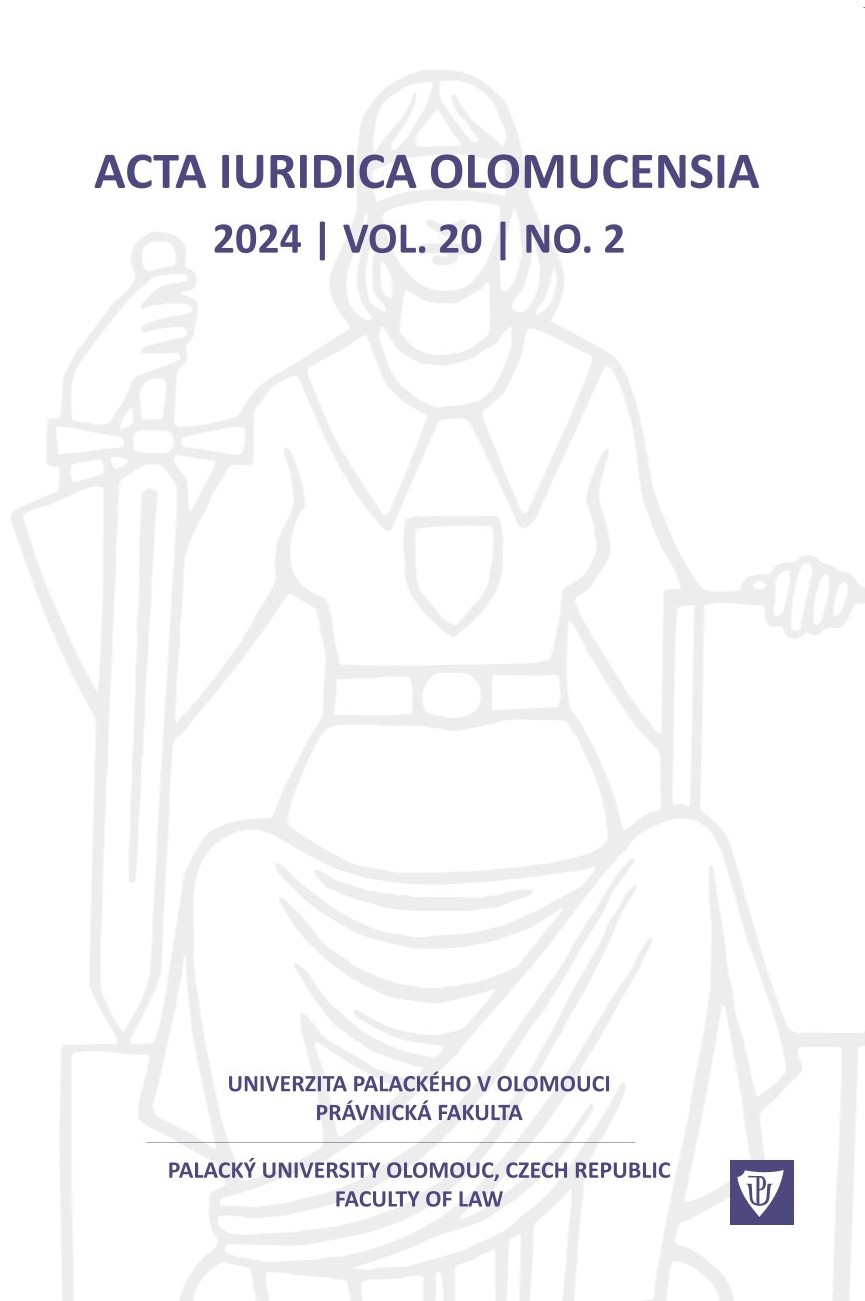
The article focuses on three changes that were included into Czech law on con¬solidation of public finance - accounting currency other than Czech crown, sustainability reporting, and report on income tax information. Reasons for all these changes are briefly evaluated. The article compares how systematically the new provisions were added to European Accounting Directive, Czech Accounting Act, and the proposed new Czech Accounting Act.
More...
The text deals with tax, customs and other legal aspects of the e-commerce model of marketplace platforms. As part of the treatment of the topic, the text deals with VAT and related customs issues from the point of view of the possibilities of marketplace platforms to implement their business model, as well as other selected obligations that are affected by this business model
More...
Administrative disciplinary offences are a type of administrative offence, main¬ly emphasising compliance with (internal) obligations within an institution. Their spe¬cificity lies in the fact that, from a substantive point of view, they may, by law, leave the definition of the facts of the offence also to an internal regulation. One of these regulati¬ons may be a code of ethics. In this paper I will deal with the definition of administrative disciplinary offences and codes of ethics as a source of the facts of these offences, pointing out whether, from the point of view of European decision-making practice, administra¬tive disciplinary offences can be considered as criminal charges for the purposes of Article 6 of the Convention and, in the event of a positive or negative answer, what principles and procedures will apply to the imposition of liability for a committed administrative disci-plinary offence. I will also compare the above in the light of national case law and analyse whether there are any differences in the European and national approaches available in the decision-making practice.
More...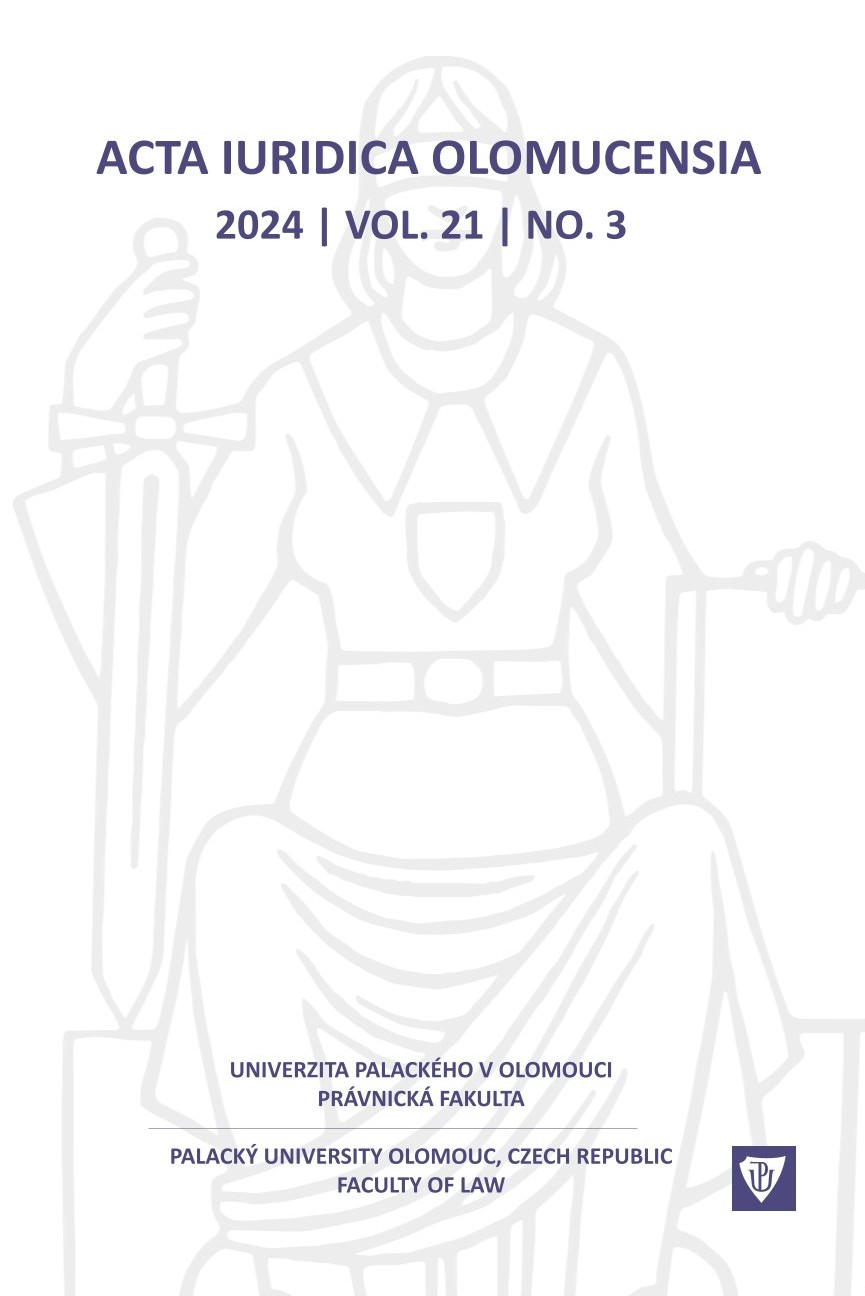
This paper focuses on the problematic definition of the concept of a small inde¬pendent brewery from the point of view of administration of excise taxes and the available legislation, including consideration of available EU and national jurisprudence.
More...
In the presented contribution, its authors focus primarily on the issue of legal regulation concerning virtual currencies, which is currently valid and effective in the conditions of the Slovak Republic. Following on from the aforementioned, the authors present the likely form of de lege ferenda legislation in the monitored area. This legisla¬tion is based on relevant legal acts adopted by the European legislator, primarily on the european regulation known as MiCa. The regulation in question represents one of the legal acts through which the legal regulation of virtual currencies was unified at the level of the European Union. At the same time, the authors emphasize that the regulation is directly applicable in the EU member states, but it will be necessary to harmonize nation¬al legislation, including the Slovak one, with this regulation. In other words, the authors point to the likely form of amendments that will need to be adopted for this purpose in the conditions of the Slovak Republic in the coming years.
More...
The article deals with the topic of the corporate income tax rate, both from the perspective of theory and the essence of the tax as an economic institution. As of 1 January 2024, the corporate income tax rate was increased by a full 2 percentage points. Between 2010 and 2023, the tax rate was fixed at 19%. Why the increase? The answer to this question is, by the way, one of the objectives of the treatment of the topic in the his¬torical context within the Czech Republic. Also, a brief foreign excursus is made in the article and within it a comparison and evaluation of the situation regarding the level of the corporate income tax rate in the Czech Republic is made.
More...
Data has become a valuable resource due to the rapid growth of technology.Nevertheless, data has little value when held by its "collectors". The true value of dataunfolds through its reuse, necessitating the role of data intermediaries to facilitate thisprocess. From the data intermediation services, as employed in the Data GovernanceAct (DGA), we are going to discuss the data intermediaries organized in datacooperatives, which ensure the technical, legal, and logistical support for datatransactions, according to the European framework. The aim of this paper is to analyzethe role of the cooperative as a data-sharing intermediary within the European context.We will adopt a threefold approach, examining the topic from legal, psychological, andtechnical perspectives to achieve a comprehensive understanding. To accomplish ourobjectives, we will conduct a thorough literature review. The DGA does not specifywhether data cooperatives are cooperative societies, whose primary function is tofacilitate the reuse of data, or whether they are a form of cooperation between datasubjects and one-person undertakings or SMEs (small and medium-sized enterprises), onthe one hand, and potential data users, on the other. Therefore, we will consider bothinterpretations and make an effort to clarify the following: What type of organization isthe data cooperative? What are the primary goals of the data cooperative as stated byDGA? What are the trigger issues and drawbacks associated with participating in a datacooperative from the legal and psychological perspective of a data subject and from thesmall entrepreneurs’ point of view? Finally, we will briefly go over the technicalsolutions that will enable the data cooperative to operate as a cooperative society and,more broadly, as a data space across Europe.
More...
This research explores the effectiveness of the European Union's (EU) competitionpolicies and regulatory framework in the era of swift technology development, focusingon the nexus between digitalization, competition, and competitiveness. A novel contentanalysis was completed using QDA Miner for 30 official EU legislative documents issuedbetween 1985 and 2024. The text was coded based on 10 major and 25 secondary themes.Key findings demonstrate that the most frequently used terms refer to market structure,business practices, and innovation, while the most frequent codes belong to theregulatory framework, competition policy, enforcement, and industrial strategycategories. The co-occurrence, link and proximity analyses show that digitaltransformation became one of the main concerns of EU in terms of regulations after 2010and, after the pandemic, it was accompanied by a sustained interest towards sustainabledevelopment after the pandemic, which align well with the twin transition – digital andenvironmental – in the EU.
More...
The paper addresses the legal challenges generated by the new configuration of the digital economy, in general, and in the European Union, in particular. In the context ofthe unprecedented development of technology-enabled activities and digitization inrecent years, the Artificial Intelligence (AI) Regulation promotes a set of rules to ensurethat the technology is trustworthy. New legal concepts emerge to insure safe use of ITtools and protection of subjects of law in the digital economy. The legal frameworkanalysis is both needed and controversial, determining in-depth research and intensedebate for the global effect of new law, which spans over multidimensional sectors,reaching the area of digital service tax. The latest is a topic more open to individualinitiative than to multilateral agreements for different states. The research outlines theresult of the analysis of the content of this new and original regulation, to validate thehypothesis that the EU law generates considerable advantages for citizens and theentities that use it, equally. Opinions contrary to this hypothesis are also analyzed,presenting possible disadvantages of AI laws to the social environment. The researchshow that EU regulation on AI will, in the long term, affect the global law and markets.
More...